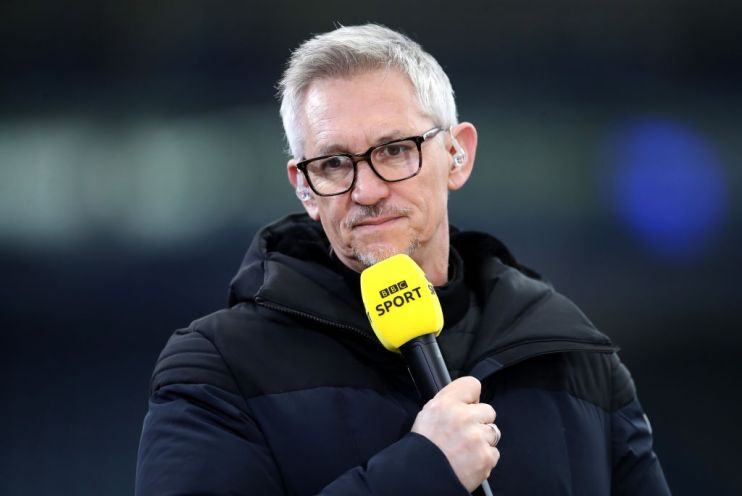Gary Lineker still BBC’s top paid star despite pay cuts

Gary Lineker is still the BBC’s highest-paid star despite taking a pay cut last year as the corporation looks to slim down its hefty wage bill.
The former England footballer and Match of the Day presenter earned £1.36m, the BBC’s latest annual report showed, down from £1.75m the previous year.
It comes after Lineker, who is also a presenter for BT Sport, took a 23 per cent pay cut on a new five-year contract.
Despite the reduction in pay he remains the BBC’s top-paid star after Zoe Ball also agreed to reduce her pay from £1.36m to £1.13m.
The Radio 2 Breakfast Show presenter has reportedly agreed to a further 28 per cent reduction, taking her total salary to £980,000.
A spokesperson for the BBC said Ball had felt uncomfortable about the level of her salary during the pandemic.
Other highly-paid stars include Radio 2’s Steve Wright on £465,000, newsreader Huw Edwards on £425,000 and Question Time host Fiona Bruce, who earned £405,000.
Graham Norton was the biggest loser in the latest league table, seeing his salary fall from £725,000 to £160,000 after he quit Radio 2 to join Virgin Radio and Eurovision was cancelled.
Strictly Come Dancing presenter Claudia Winkleman dropped off the list of high earners — which covers stars earning £150,000 or more — completely.
The BBC has been under pressure to slash stars’ salaries since the corporation was forced to publish pay details in 2017.
The broadcaster has since been embroiled in a row over its gender pay gap, while a number of top stars have taken pay cuts or defected to commercial rivals. The latest figures show its pay gap reduced to a median of 5.2 per cent last year, compared to 6.2 per cent the previous year.
But while the latest annual report showed spend on top stars has reduced by 10 per cent, it does not give a complete picture of pay as it does not include earnings made through the organisation’s commercial arm BBC Studios.
Strictly Come Dancing and Graham Norton’s BBC One chat show are among the programmes made by BBC Studios and therefore not included on the list.
Julian Knight, chair of the culture select committee, said there was a “concerning lack of transparency” in the pay report.
“Without any indication of whether [BBC Studios] earnings have gone up or down, licence-fee payers are only getting half the picture on whether they are getting value for money,” he said.
“It’s time for the BBC to commit to full transparency on its talent bill and drop the smoke and mirrors approach.”
The annual report also revealed a reduction in salary for new director general Tim Davie, whose pay was cut to £471,000 from £642,000 the previous year.
Elsewhere the BBC today revealed it reduced its public sector workforce by 1,200 roles — or six per cent — last year, while senior leader numbers were also down five per cent.
This included five months he served as chief executive of BBC Studios, and the reduction was largely due to a £200,000 bonus he took from the commercial division a year before.
He is expected to see his total pay rise to £525,000 from next year.
Davie and new chairman Richard Sharp are the only BBC employees entitled to the use of a car and driver.
“The BBC is responding to global competition and pressure on our finances. But, we know we must do much more to ensure licence fee payers across the UK get best value from the BBC, to maintain their trust and provide a service they cannot do without,” said director general Tim Davie.
“I am absolutely focused on making the reforms we need to ensure the BBC is positioned to offer all audiences the best possible service well into the future.”